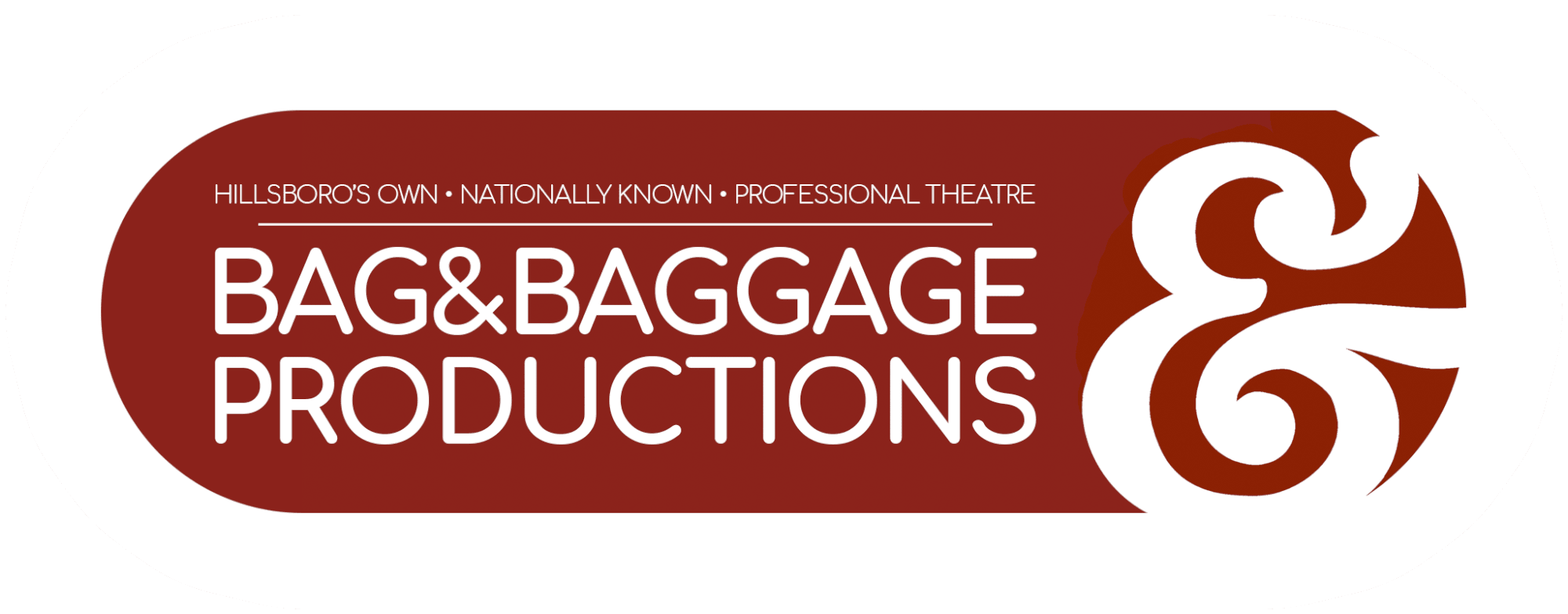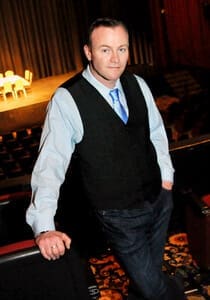- Skip to primary navigation
- Skip to secondary navigation
- Skip to main content
- Skip to primary sidebar
Remembering Lear – Part One
Our Artistic Director Scott Palmer will be doing a series of blog posts over the coming weeks detailing his experience of adapting King Lear for the stage in Glasgow, the different productions he has been involved with and his plans for the upcoming production at The Venetian Theatre in March….
Remembering Lear – Part One
There is no question that the two different productions of my adaptation of King Lear produced for Glasgow Rep are among the most powerfully defining productions of my career. The reasons are many, not least of which are the friendships and artistic connections I developed with many of the actors in those two show…
But really it all started with my grandfather and my first professional theatre experience.
My grandfather was a powerful, strong man. He was a farmer, a former boxer, a fisherman, a curmudgeon, a hard father to his daughters and a playful, quiet figure of authority for his many grandchildren. At the end of his life, his memory and personality had been ravaged by Alzheimer ’s disease and he had grown into a shadow of his former self. His decline was slow at first, evidenced by forgetfulness and distraction, and then rapidly degenerated into chaos, physical frailty, violence, confusion and (in the words of Shakespeare) second childhood. It was terrible to watch, and terrible to see the impact that the devastation of this once great man had on his children – my mother and her three sisters. He died as an empty shell of the man he once was, having completely forgotten himself, his children, his life, his wife and his grandkids. It was horrible.
Only a few years earlier, when I was still in high school, I had travelled to the Oregon Shakespeare Festival with my theatre class to see plays over a weekend. To be honest, I don’t remember all of the shows we saw…with one exception: King Lear on the Angus Bowmer stage. The group I was with was made up of probably 12 – 15 students and our teacher and, at the first (of two) intermissions, our teacher recognized a generalized sense of boredom and anxiety among my classmates and, quite rightly said, “Look, we don’t have to stay, but if even ONE of you wants to see the rest of the play, we all stay.”
I raised my hand and said, “I want to stay.”
I don’t recall who played Edgar or Edmund or Gloucester. I only barely remember the actors who played Kent and the Fool. But what I do remember, as clear as day, are the actors who played Lear, Goneril, Regan and Cordelia…as clearly as if they were standing in front of me right now. I don’t think I even understood the plot of the story…I had no concept of the grand, sweeping politics that were at play. What I did know was this: A powerful man was going mad and his daughters were suffering.
It hit home with me in a way that very few (if any) other theatrical performances ever had. For me, the story of King Lear was the story of a father and his daughters. That was the only story that mattered, the only story that resonated with me, and I wanted to know what happened. How would it all end?
It ended badly. Terribly, in fact. Tragedy heaped on tragedy, dismay piled on top of betrayal, terror mixed with a profound sadness, and the repeated words “never, never, never, never…”
I came home to Hillsboro from Ashland that Sunday, the next Monday after school, went to the Hillsboro Public Library at Shute Park and found a copy of King Lear and I read it. Cover to cover. In one sitting.
I have a notebook from High School…a ridiculous journal detailing all of the petty annoyances, flirtations and obsessions of my life at that time. Flipping through the pages now, I cannot recall what 99.9% of the words are referencing, except for these, scrawled in my terrible handwriting all by itself on a single page:
“And they for sudden joy did weep, and I for sorrow sung, that such a King should play bo-peep, and go the fools among.”
I suppose that it is possible that, at some time during my educational career, some teacher at some point had said that Shakespeare’s language was “universal,” that the Bard wrote about themes that could connect to our lives in powerful and meaningful ways. It is possible, although I don’t remember it. What I know now is that the horrible death of my grandfather, the chaos that his illness created in my family, and the tragedy heaped on tragedy that resulted from his death…well, it wasn’t reflected in Shakespeare, but by god it was turned into poetry. Poetry that meant something to me.
Many years later, while living in Scotland, I had the opportunity to direct King Lear for my young company Glasgow Rep. I knew that I wanted to shape the story into something that would reflect my own experience of the play and, to be honest, I had yet to really walk into the terrifyingly deep waters of my own adaptation process…so I did what any good graduate student would do in my place: I started to research other people’s adaptations of King Lear. What I found changed my life in a more profound way than almost anything else I had ever experienced: I was introduced to the truth that Shakespeare wasn’t the only person who wrote Shakespeare and that there was a huge, vast and vastly rich world of source materials, translations, poems, myths, histories, plays, and songs that Shakespeare used to craft his own work and…(more importantly to my later career as a director and adaptor) that OTHER PEOPLE REWROTE SHAKESPEARE.
Gasp.
I don’t know if I can overstate the impact this realization had on me…it was the first time that I can recall thinking “someone rewrote Shakespeare? Holy shit! I wonder if I could do that?”
So…I did.
More To Come!


Reader Interactions